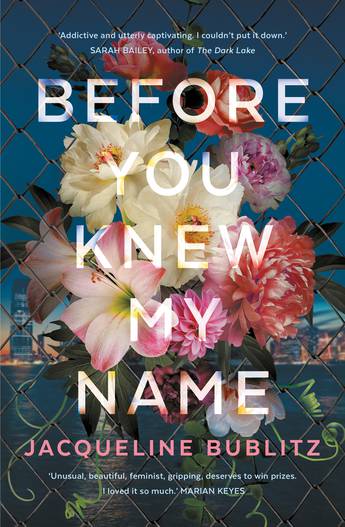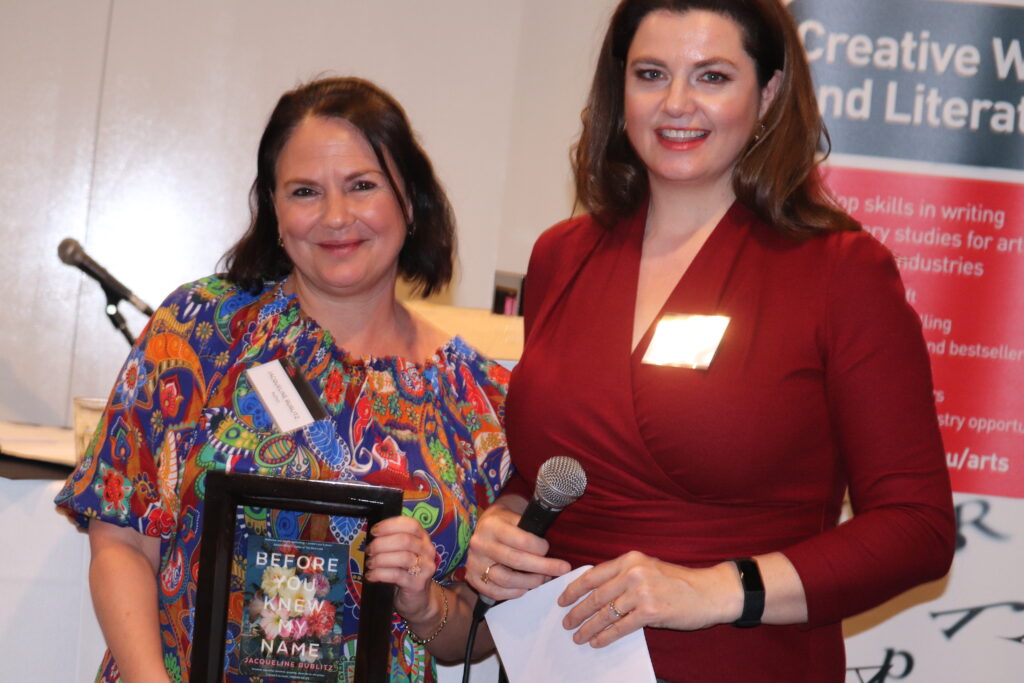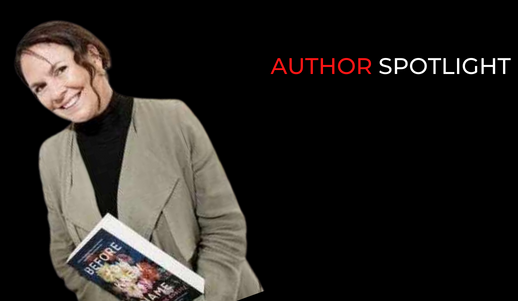Georgina Baron-Ross spoke to Jacqueline Bublitz, author of Before You Knew My Name (Allen & Unwin 2021) back in July for Author Spotlight. Since then, the book has won an amazing two Davitt Awards – for Best Debut and Readers’ Choice, as judged by the 500+ members of Sisters in Crime. Jacqueline splits her time between Melbourne and New Zealand and, luckily for us, crossed the ditch to accept the awards.
Hello Jacqueline, firstly congratulations on your debut novel Before You Knew My Name. I’d like to shine a light on this brilliant debut novel, which transports us to New York City and the life of Alice Lee, who has just arrived in New York at 18 years of age with only $600 in her pocket.
We find that Alice is the city’s latest ‘Jane Doe’ and follow the story of her life and murder. We meet Ruby, a 36-year-old Australian, who has also moved to NYC for a change and discovers a body (Alice), which throws her into the world of murders, morgues, and PTSD.

What drew you to Alice and Ruby and which character do you relate most to?
I relate to them both in their way, but Alice was definitely the easier character to write. She came to me one afternoon with such clarity of voice, I would say it’s one of the few times I’ve wondered if there really might be something a little bit magic about the writing process. I immediately understood her curiosity and her stubborn form of optimism, and the way she had learned to layer over her vulnerability in order to keep going. Once I knew who she was, I decided to have Ruby’s character sort of revel in her own vulnerability, that she would essentially represent the parts of Alice there was no space for Alice herself to express. I had a lot of fun finding parallels between the two women, and my favourite scene, hands down, is their imagined meeting near the end of the book.
What was it about New York that inspired you to write this particular story?
I always joke that I chose the setting simply because I’d wanted to live in Manhattan since I was five years old, and I felt like I could justify upending my life to go there if it was to write ‘the great novel’. There’s some truth to that, but the reality is New York was the third, bigger, bolder character I was looking for in this very intimate story about these two women. The way New York is so often represented in popular culture, I didn’t have to lay a lot of groundwork to have readers understand why both Alice and Ruby might upend their own lives to move there, and I really got to play with the contradictions inherent in big cities. All that possibility and all that anonymity. It was life-changing for my characters, and life-changing for me.
I loved how Alice ‘breaks the fourth wall’ by communicating with the reader. Why did you decide to use it for this story?
One of the very first scenes I wrote was a then out-of-context moment where Alice is describing what happened to her down by the river, and she stops, not wanting to go any further. I don’t feel like telling you anything else right now. It was such an ah-ha! moment for me, where I realised I could make it explicit that Alice wanted to tell her own story, and in her own way. Acknowledging the reader became a natural part of Alice’s cadence, and a way to move from monologue to dialogue even when she was the only person in the scene. I’m so glad it worked for you!

Did you research murders of women in Manhattan, and was there a particular ‘one’ that inspired this book?
While I did research incidents of violent crime in New York, it was the Melbourne murder of Renea Lau in 2014 that compelled me to start writing what eventually became Before You Knew My Name. By the time I got to New York in 2015, I knew I wanted to write a book about the ways women constantly navigate their safety, and the threat that just sort of hovers when you know some aspect of your identity puts you at risk, no matter where you are in the world.
What advice would you give to a writer working on their first book?
I think … do whatever works for you, if it eventually leads to words on the page. For example, when I’m drafting, I write scenes as they come to me, without much thought for where they might end up in the story, but for other writers, all the plot points and outlines, and sticky notes come first. I envy that approach, but I know it’s not for me, or I’d simply plan myself into the ether.
I’d also say go easy on yourselves. As far as I can tell, no book arrives fully formed, so expect your early drafts to be average, or even terrible. Then rearrange the bones of your story and see what you can make out of them the next time. And the next time and the next, ha.
Can you tell your readers what you’re currently working on?
I’m following my own advice and playing with the bones of book two. In other words, after a couple of false starts, I’m currently deep in the drafting process for a second novel that further explores our cultural obsession with true crime, and who gets to tell their stories. It’s set a year after Alice Lee’s death, and though it’s by no means a sequel, it certainly exists in the same universe. We have a working title, and if it sticks, we’ll be sharing it soon. I am very, very excited about this one.
More on Jacqueline Bublitz here.
